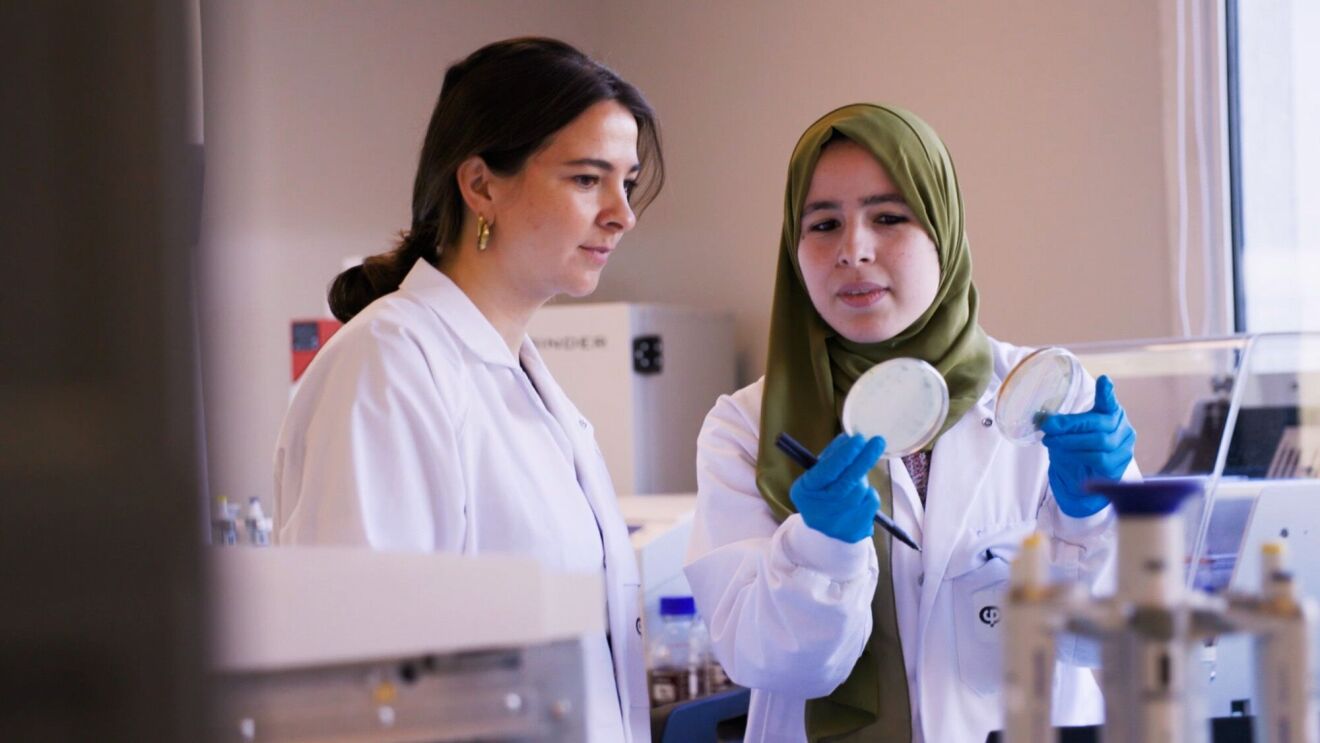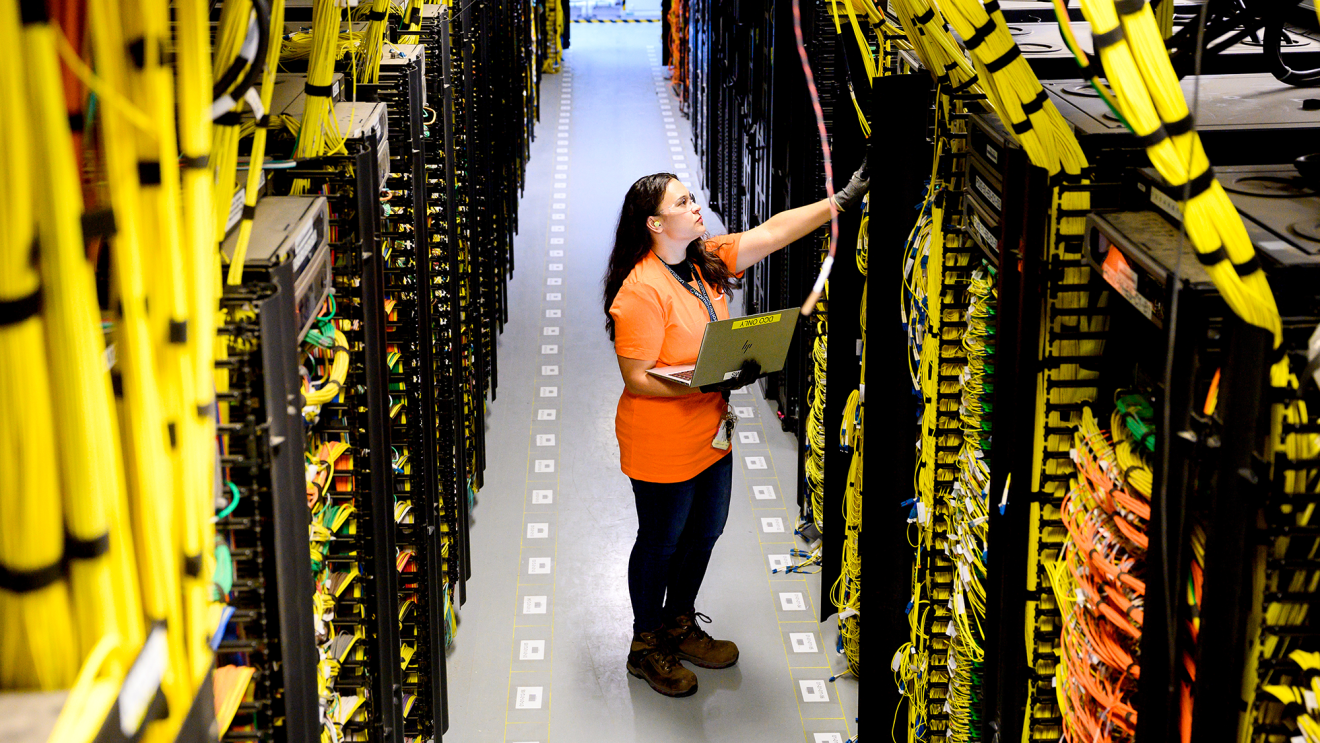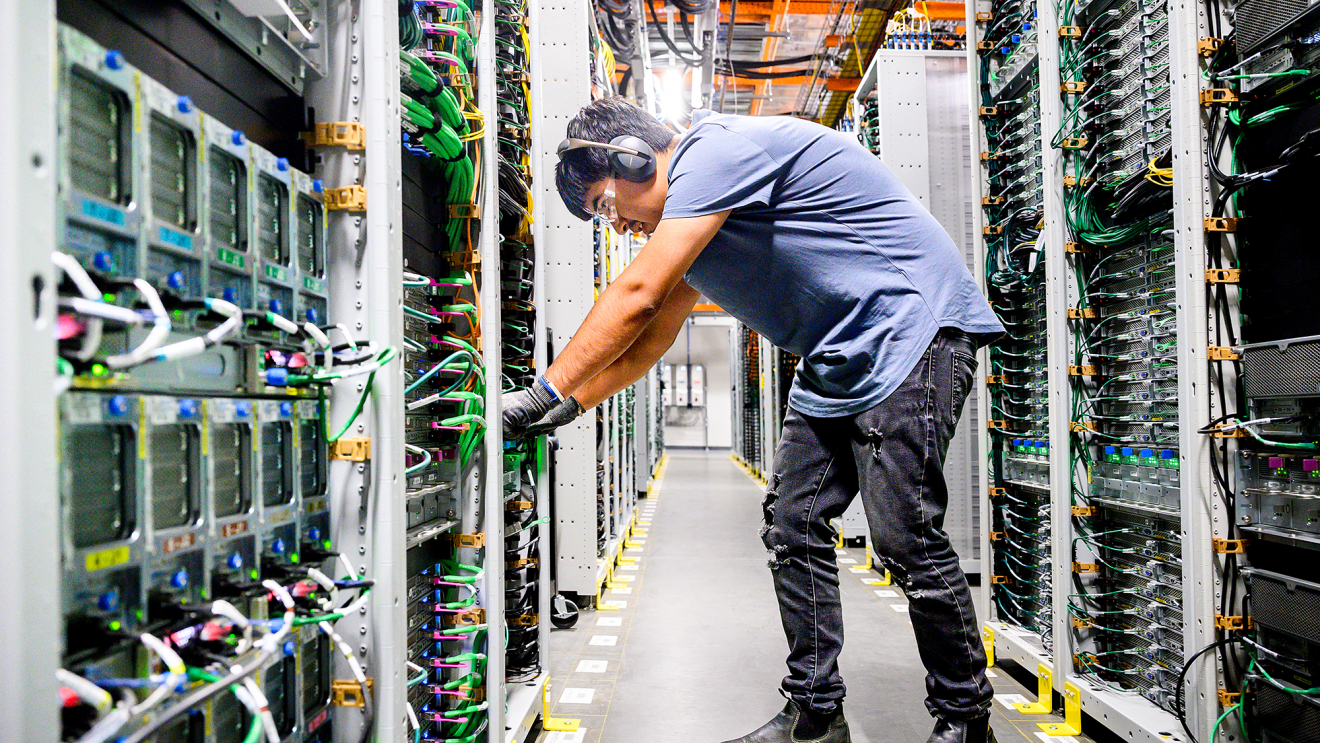Page overview
Decommissioned server racks are sanitized of customer data
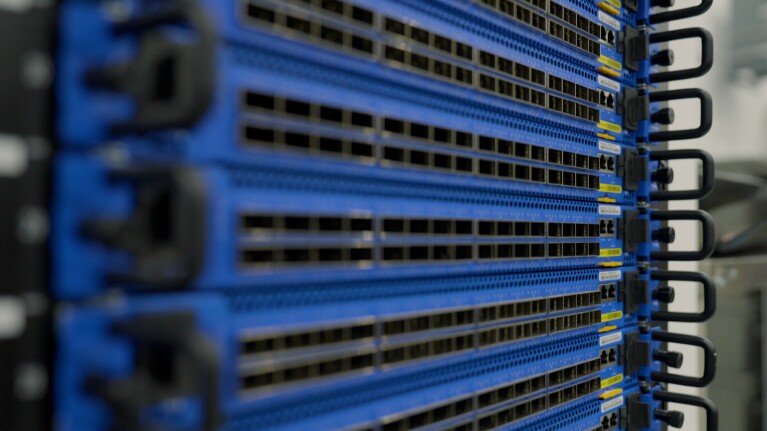 Functional, sanitized, retired server racks and components are sent to one of AWS’s global reverse logistics hubs.
Functional, sanitized, retired server racks and components are sent to one of AWS’s global reverse logistics hubs.Prior to being demanufactured at an AWS reverse logistics hub, all data-storing media is sanitized to ensure customer data is securely removed. Server racks are then decommissioned and tested for functionality.
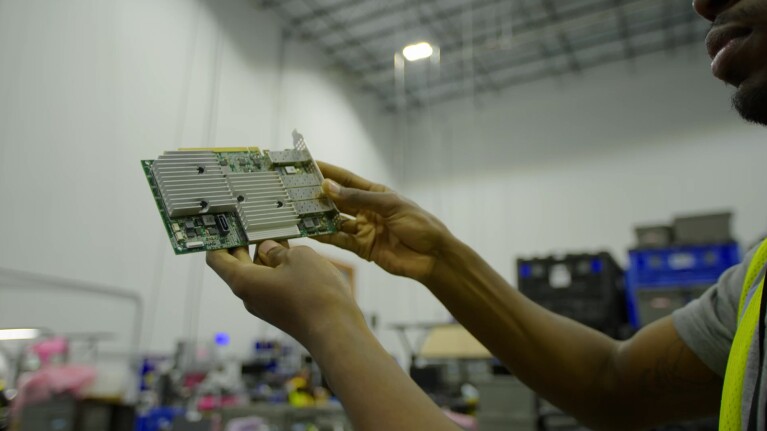 AWS technicians process individual components in the IT asset disposition center prior to repair and testing.
AWS technicians process individual components in the IT asset disposition center prior to repair and testing.AWS currently has reverse logistics hubs in major regions around the world that process hardware from local data centers. Each hub consists of an information technology (IT) asset disposition center that receives server racks and individual components from data centers and a failure analysis lab (FA lab) that tests and repairs used components. Throughout every stage of the reverse logistics process, security remains a top priority.
“We apply the same high level of care and security as we do when the hardware is active in production in our data centers,” said Lisa Anderson, AWS operations senior manager for reverse logistics in North America.
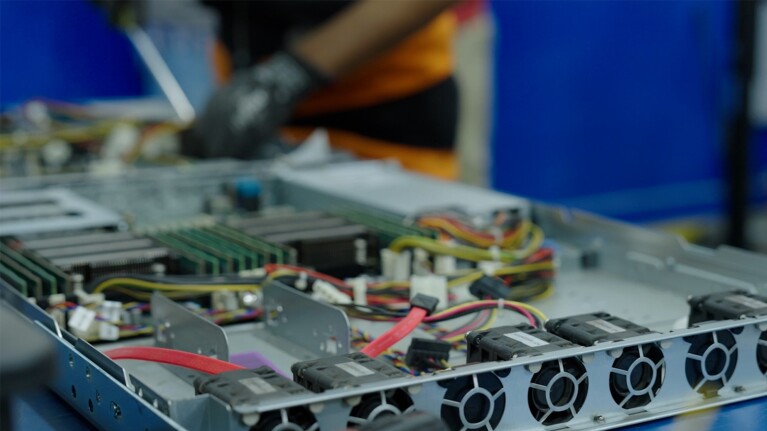 Server racks are carefully demanufactured on site to ensure the highest level of security.
Server racks are carefully demanufactured on site to ensure the highest level of security.During the demanufacturing process, server racks are taken apart into individual components. AWS technicians then process and evaluate each component to determine the highest reuse potential. AWS Nitro Cards, power supply units (PSUs), graphics processing units (GPUs), switches, dual in-line memory modules (DIMMs), and fiber optics are among the components prioritized for reuse.
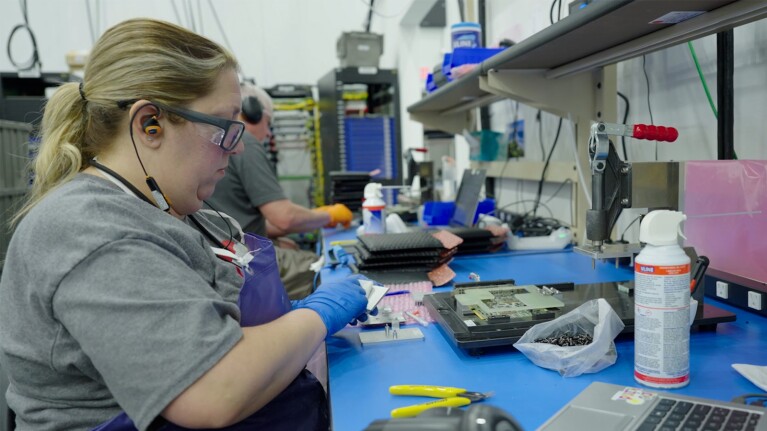 When needed, AWS failure analysis lab technicians remove components from Nitro Cards to assess physical damage.
When needed, AWS failure analysis lab technicians remove components from Nitro Cards to assess physical damage.The FA lab is the nucleus of an AWS reverse logistics hub. It’s made up of two parts: repair lab and testing lab. In the FA lab, technicians inspect components for physical damage.
Julie Scudder, manager of the AWS FA lab in North America, explained, “The technicians look for any defects that would prevent a component’s reuse in a data center.”
After inspection, the technicians make minor repairs when needed and clean components before sending them for testing.
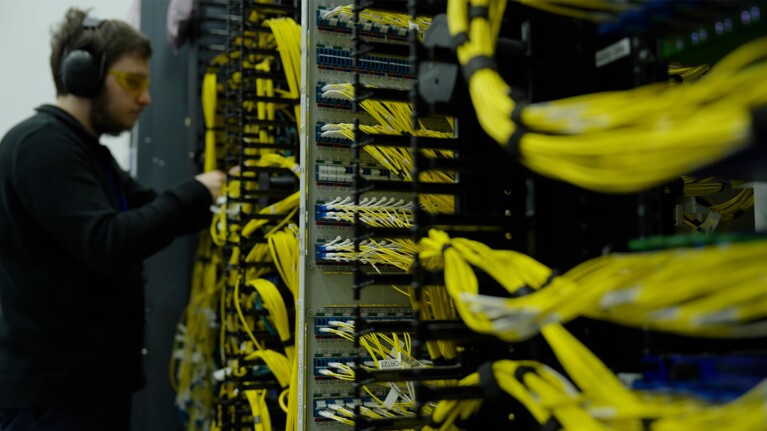 Fiber optic cables are made up of tiny glass tubes, which makes repairing and testing them specialized work.
Fiber optic cables are made up of tiny glass tubes, which makes repairing and testing them specialized work.In the FA lab, several server racks run throughout the day as technicians evaluate different aspects of performance. At the fiber optics station, AWS technicians run tests that measure data delivery to ensure their connection remains strong. Other tests simulate data center operational stresses or use software scripts to determine the functionality of components.
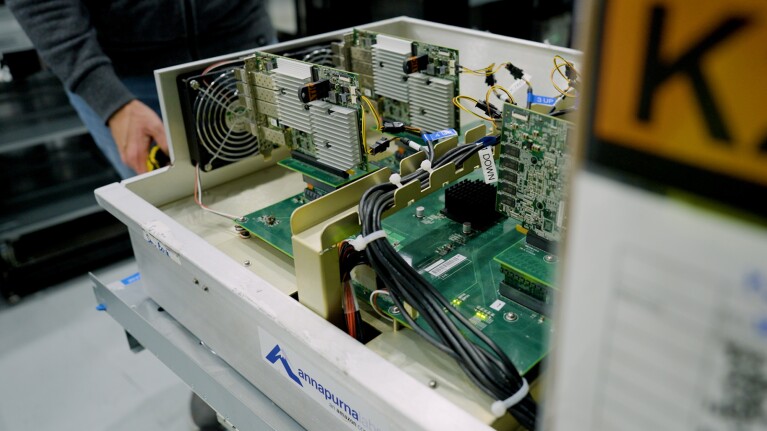 Each Nitro Card testing rig is connected to a computer that processes data to determine functionality.
Each Nitro Card testing rig is connected to a computer that processes data to determine functionality.AWS Nitro Cards and their testing rigs are manufactured by Amazon’s Annapurna Labs. Once a card is placed in a testing rig, an FA lab technician runs a series of software scripts to ensure the card will perform with the same high-quality standards as a newly manufactured card. Nitro Cards are part of the AWS Nitro System that provides enhanced security, confidentiality, and performance, enabling the delivery of innovative technologies at a rapid pace to Amazon Elastic Compute Cloud (Amazon EC2) customers.
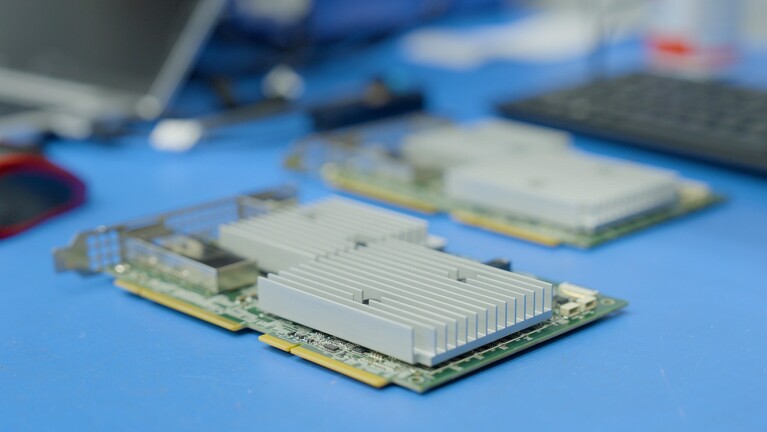 Along with Nitro Cards, Annapurna Labs is responsible for building innovation in silicon and software for AWS customers.
Along with Nitro Cards, Annapurna Labs is responsible for building innovation in silicon and software for AWS customers.The data collected from Nitro Card testing is sent directly to Amazon’s Annapurna Labs. This process helps identify hardware or software modifications to improve new product development and to further extend the lifespan of existing cards.
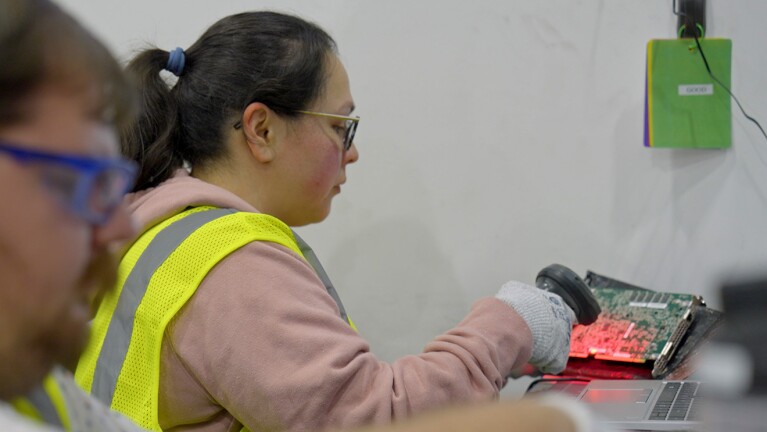 Once testing is complete, functional components make their way back to IT asset disposition where they’re scanned for shipment.
Once testing is complete, functional components make their way back to IT asset disposition where they’re scanned for shipment.As a final step, functional components are processed and shipped back to data centers.
“We have a lot of pride in the work that we do, knowing there's still a lot of useful life in the products that we touch,” said Anderson. “The components we repair are small, but they have the potential to make a big impact for our company, our customers, and our planet.”
Trending news and stories
- Meet Project Rainier, Amazon’s one-of-a-kind machine ushering in the next generation of AI
- What’s new for Prime Day 2025? 4 things that make this year’s event different
- 17 of the best early Prime Day 2025 deals you can shop right now
- Prime Day is back July 8-11, with double the days and millions of deals



